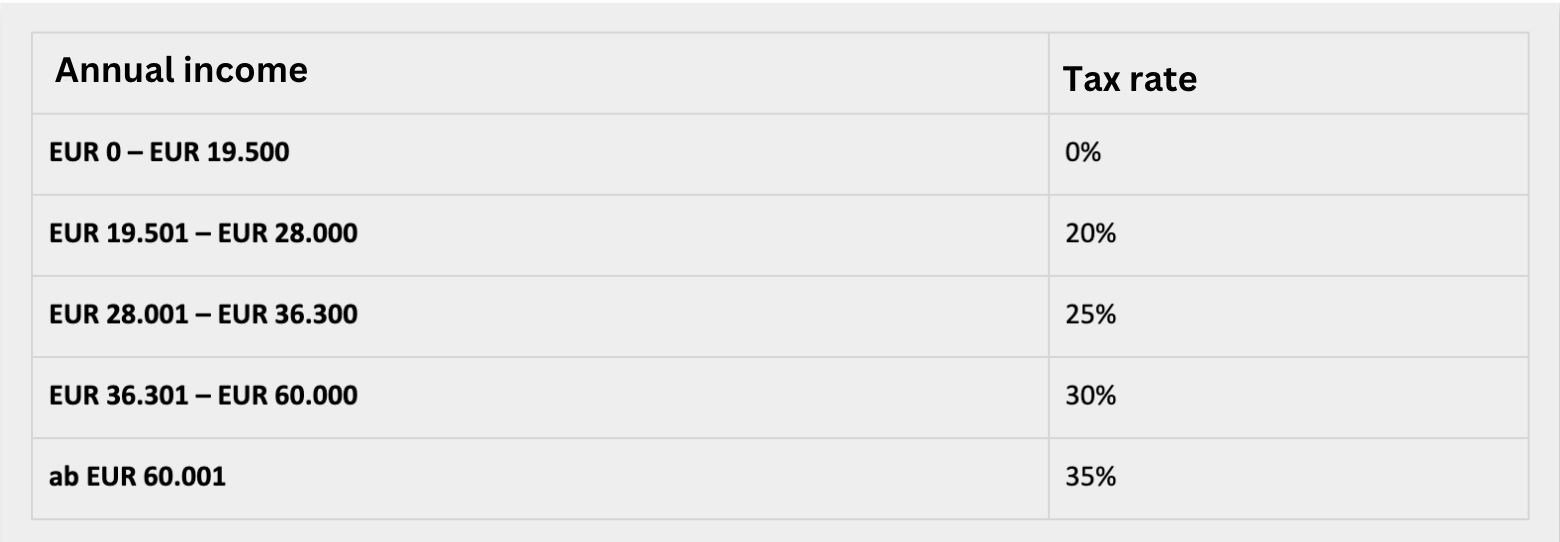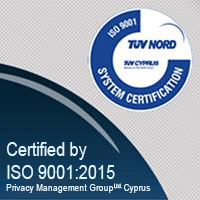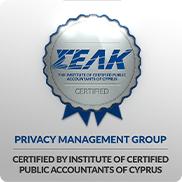Benefits for the Non-Dom Status
Overview and Importance
The Non-Dom status in Cyprus offers unique tax advantages for international entrepreneurs and investors. This article provides an overview of the key benefits and legal framework that make Cyprus an attractive location. Learn how you can benefit from the flexible residency requirements and tax relief provided by this status.
By understanding the advantages and regulations, you can make informed decisions to optimize your tax situation and enjoy the lifestyle benefits of residing in Cyprus.

Tax advantages for Non-Doms in Cyprus
A key advantage is the exemption from taxation of dividends and interest. This regulation allows investors to maximise their income without any additional tax burden. The tax-free sale of securities is equally advantageous. This allows market gains to be realised without tax losses.
Another significant advantage is the low corporate tax rate of just 12.5 %, one of the lowest in the EU. This favourable tax policy attracts many companies that relocate their headquarters to optimise their tax burden.
This means that income from international sources remains largely tax-free for investors and entrepreneurs. This makes non-dom status particularly attractive for people who realise high investment income and want to manage it efficiently.
These tax reliefs contribute significantly to establishing Cyprus as a favoured location for wealthy individuals and companies worldwide. The combination of low tax rates and comprehensive tax exemptions creates an attractive environment for financial and business activities.

Minimum stay requirement of 60 days per year
A key requirement for Non-Dom status is the minimum stay of 60 days per year in Cyprus. This rule is more than just a formality; it has important legal and practical implications. You must be able to prove this stay, as authorities may require evidence of your actual presence when applying for a residency certificate or national tax certificate.
Experience shows that most Non-Doms have no trouble meeting the minimum days requirement. The flexible rule allows you to spread the 60 days throughout the year rather than in one continuous period. This is particularly advantageous for those who travel frequently or conduct business globally.
Meeting the minimum stay requirement is not only a legal necessity but also a practical way to fully benefit from the tax advantages of Non-Dom status. Failing to meet this requirement can lead to complications with tax authorities and potentially jeopardize your Non-Dom benefits.
Therefore, meticulous planning and record-keeping are essential to ensure compliance and retain the advantageous tax status.
Additionally, it’s worth noting that the flexibility in the 60-day rule is designed to accommodate various lifestyles, including those of digital nomads and international businesspeople.
By offering such a liberal residency requirement, Cyprus ensures that its Non-Dom status remains accessible and practical for a wide range of individuals seeking tax efficiency.


Stays outside of Cyprus and their implications
After moving to Cyprus, you can stay abroad like any visitor or tourist. However, it’s crucial to note that extended stays in other countries can have tax implications.
A domicile is assumed if you have accommodation that is regularly available or frequently used, such as a second home or hotel room. A fixed residence is not strictly necessary; it is sufficient that you are not only temporarily present.
For example, in Germany, ordinary residence is presumed if you stay more than six months in a year. Brief departures do not interrupt this period. Stays for purposes like recreation or visits can extend this period to twelve months.

These rules mean you must plan your stays carefully to avoid unintended tax liabilities in other countries. It’s essential to always behave as a visitor or tourist, not as a local resident.
This flexibility in planning stays makes Non-Dom status particularly attractive, but it also requires careful planning and documentation of overseas stays. Keeping detailed records of your international travel, including dates of entry and exit, accommodation bookings, and purpose of stay, is essential to avoid potential disputes with tax authorities.
Additionally, understanding the tax residency rules of countries you frequently visit is crucial. Consulting with international tax experts can help navigate these complexities and ensure that you maintain your Non-Dom status effectively.
Residence and Second Home in Your Home Country
The question of whether you can maintain a residence or a second home in your home country is complex. Essentially, having a residence in your home country typically results in full tax liability. A second home is also not feasible, as it would similarly lead to tax obligations.
The Non-Dom status requires that you are not indefinitely tax-resident in any country other than Cyprus. This means that a permanent residence or regularly used second home in another country is not allowed. Retaining such ties to your home country would compromise your Non-Dom status


For those unwilling to completely relocate their residence, there are alternatives. Establishing a Cyprus Limited company without relocating your residence is one option. However, this requires strict compliance with legal regulations and careful planning.
In summary, maintaining the Non-Dom status necessitates having your primary residence in Cyprus and not having permanent residences in other countries. This ensures that you can fully benefit from the tax advantages.
To further safeguard your Non-Dom status, consider divesting from property or accommodation that could be interpreted as a permanent residence in your home country. This might include selling or leasing out properties and avoiding long-term hotel stays.
Conclusion
In conclusion, the Non-Dom status in Cyprus offers significant tax benefits for international entrepreneurs and investors. Key advantages include exemption from tax on dividends and interest, tax-free securities sales, and a low corporate tax rate.
The 60-day minimum stay requirement provides flexibility, making it particularly beneficial for frequent travelers and digital nomads.
Maintaining the Non-Dom status requires having your main residence in Cyprus and avoiding permanent residences elsewhere. Careful planning and consulting with tax advisors are essential to maximize these benefits and ensure compliance with legal requirements.
For more detailed information and personalized advice, our team is always available to assist.







